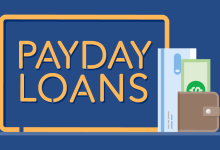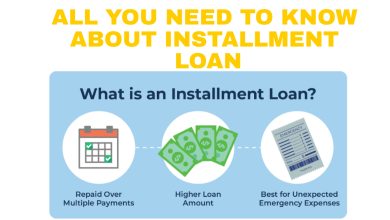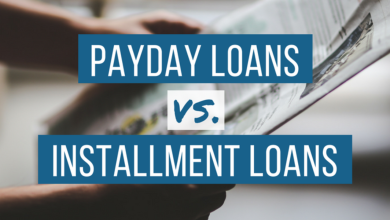How to Choose The Best Installment Loan for Your Education and Employment
Do you need to borrow money for college, but you want to pay for it in a way that won’t derail your future? Are you a recent graduate who needs cash to get started in your new life? Whatever the reason, an installment loan is probably your best option. These loans are designed with specific borrowers in mind. They come with flexible repayment terms, and they’re easy to qualify for if you meet the right criteria. But which type of installment loan is right for you? In this blog post, we’ll explain what these loans are and when they make sense as a form of financing for education and employment goals. Read on to learn more about these lending options and pick the right one for your situation.
What is an Installment Loan?
An installment loan is one that you pay back in small, regular payments. The key to this type of loan is to take out a loan that you can afford to pay back. Although you may take out a lump sum, you’ll likely be making payments for the term of the loan, which is typically between three to five years. The minimum amount you can borrow through an installment loan is usually $1,000. If you can’t pay off all of the loans in the first year, you will have to pay a small fraction of the amount each month. Some installment loans are for a specific purpose, such as funding your education. But, other types of installment loans are designed for both personal and business use. These include lines of credit, home equity loans, and car loans.
What is an Installment Loan for Education?
An installment loan for education is an easy and flexible way to fund your child’s education. Unlike loans that are borrowed using federal loans, these loans are not subject to income-based repayment plans. This means you will have to pay back the full amount borrowed, even if your income is low. There are different types of educational loans for different types of institutions. Some may be for private colleges and universities and some may be for public schools, such as community colleges. And, you may be able to get an installment loan to fund your child’s education at a variety of levels.
How to Qualify for an Installment Loan for Education
Before you apply for an installment loan, you’ll need to have documented proof that your child is attending school. That could include a copy of your child’s attendance record, a Tuition Statement, or a tuition bill with payment due. You’ll also need to have the financial aid paperwork completed. This includes the Free Application for Federal Student Aid, or FAFSA, and a financial aid letter that explains the cost of attendance. Finally, you will need to provide a letter of intent from a financial aid officer that states your student’s financial aid package and how much you are borrowing.
How to Choose the Right Loan for Education and Employment Goals
When you apply for the loan, explain why you need the money for education or employment. This will help determine the type of loan you receive. Then, focus on the loan type that best suits your needs. – If you will be using the loan to pay for your child’s education, a cosigner loan may be the best option. This loan requires you to put up collateral, but it protects your child if he or she doesn’t repay the loan. – If you will be taking out an installment loan to pay for your education, a low-interest loan may be the best choice. – If you will be using the loan for employment, a line of credit may be the right option. This loan has high interest but you will have to pay it back once you use it.
Should I Take Out An Installment Loan?
If you are planning to take out an installment loan, you should think carefully about whether it is worth the trouble. An installment loan will likely be a small part of your monthly payments. And, you’ll have to make some major financial decisions when it comes to repaying it. If you decide to take out an installment loan, it’s important to focus on the long-term benefits. This means focusing on the type of loan that best suits your needs and spreading the loan out over time. If you are borrowing money to pay for your child’s education, a low-interest loan may be the best option. This loan has low interest and is tax-deductible. That means it will be cheaper in the long run while still paying off the loan.
How to Apply for an Installment Loan
If you are applying for a loan to fund your child’s education, look into the federal loans. These loans typically have lower interest rates, flexible repayment terms, and a variety of payment options. If you are taking out a loan for your own education or employment goals, consider a low-interest loan with a low-interest rate. This will help you pay off the loan faster and save money in the long run.
The Advantages of an Installment Loan for Education and Employment Goals
– Low-Interest Rates: An installment loan for education comes with low-interest rates and no upfront costs. That means you can borrow as much as you need to cover the cost of education. And, when you are ready to pay off the loan, you can take advantage of lower interest rates.
– Flexible Terms: An installment loan for education has flexible terms, which means you can choose a repayment plan that works for you. Depending on your situation, a shorter repayment period may help you repay the loan faster.
– Tax Receipt: An installment loan for education comes with a tax receipt that shows how much you have borrowed and how much you have paid. This allows you to track your loan and see how much you have paid off.
– Easy Repayment: An installment loan for education comes with easy repayment. This means you can make a single payment each month, which is typically easy to do.
– No Credit Checks: Some loan providers may require you to take out a credit check, but the federal student loan program does not require you to take out a credit check.
The Disadvantages of an Installment Loan for Education and Employment Goals
– Repayment Period: An installment loan for education comes with a 5-year repayment period. This is typically the amount of time you have to repay the loan.
– Interest Charged on Default: If you don’t repay the loan, you will be charged interest. Depending on your state and loan type, this interest may be tax-deductible.
When Should You Use An Installment Loan?
An installment loan is best used for large objectives that take time to complete. These types of loans make the most sense when you need to borrow large amounts of money for a long period of time. If you want to buy a home or open a business, a line of credit makes the most sense as it is a long-term loan. If you want to fund long-term education or funding for a long-term project, an installment loan makes the most sense.
Conclusion
An installment loan is a type of loan that comes with small, regular payments. You can get these loans from a variety of sources, and they are typically easy to qualify for. The key to a successful repayment is to take out a loan that you can afford to repay.








